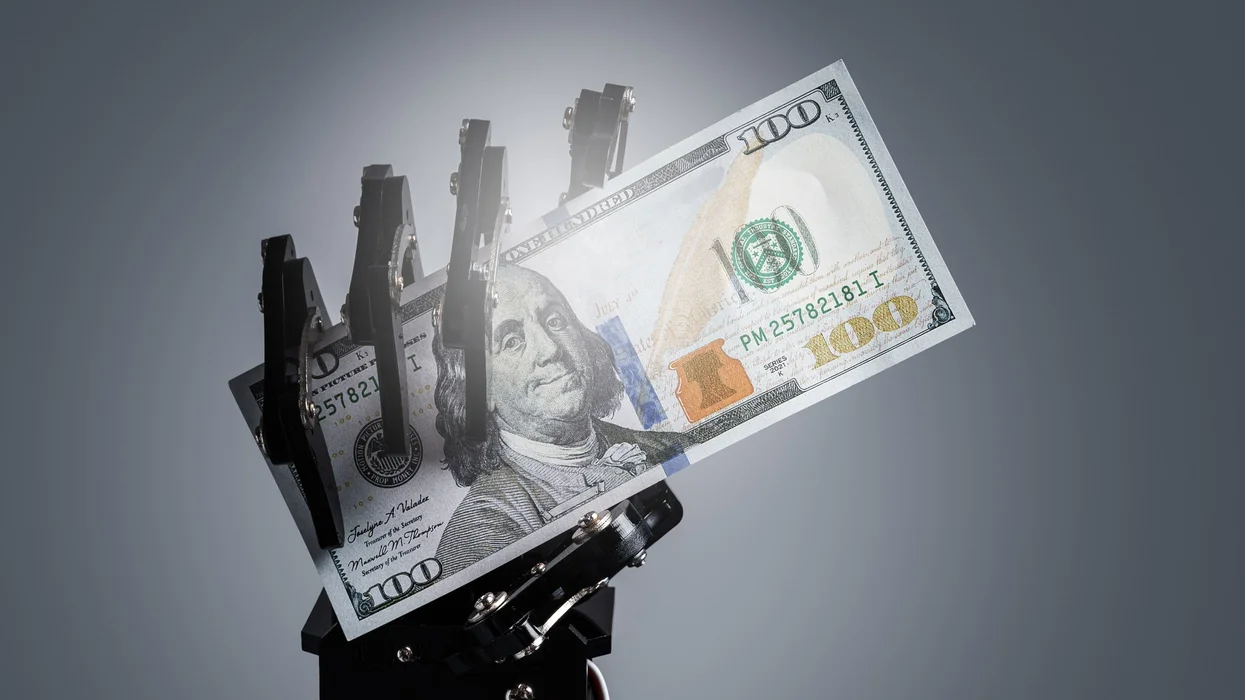
Getty Images/Jun

If you thought the Great Recession was bad, you ain’t seen nothing yet.
A few years ago, two of my colleagues, Justin Haskins and Donald Kendal, warned the public about a plan concocted by the World Economic Forum promoting a new world order called the “Great Reset.”
At first, the corporate media and globalist institutions sympathetic to this new world order mocked and ridiculed anyone who mentioned the Great Reset in a negative light as a loony conspiracy theorist. In this case, however, the truth eventually won the day. Now, the Great Reset is well-known as a clumsy attempt by Klaus Schwab and the World Economic Forum to use the COVID-19 pandemic to reorganize society on a worldwide scale while replacing shareholder capitalism with stakeholder capitalism.
Too-big-to-fail financial institutions have made certain they have little to worry about.
Uncovering the Great Reset was only the beginning. Allow me to introduce you to something even more ominous: The “Great Taking.”
David Rogers Webb, author of “The Great Taking,” describes it as “the end game of the current globally synchronous debt accumulation super cycle.”
The Great Taking refers to a decades-long plan by a cast of characters hellbent on ensuring that the entire economic game is rigged so much in their favor that they win under practically any circumstance.
When times are good and the economy is humming along, the Great Taking allows those at the top of the economic food chain to make money hand over fist. But, more importantly, the Great Taking ensures that those in the highest positions of power have nothing to worry about in the event of an economic collapse.
The story begins back in the 1960s, when Wall Street was in the midst of the “Paperwork Crisis.” As computers were coming of age, Wall Street transitioned from a paper certificate-based ownership system of securities to a digital depository book-entry system. This paved the way for the creation of the Depository Trust Company in 1973, to “reduce costs and provide clearing and settlement efficiencies by immobilizing securities and making ‘book-entry’ changes to ownership of the securities.”
By the mid-1990s, the Uniform Commercial Code, “a comprehensive set of laws governing all commercial transactions in the United States,” was revised so that ordinary customers with IRAs and 401(k) accounts own what are called “security entitlements” instead of the actual security itself. This meant that “investment securities can be safely used as collateral” by large financial institutions. Essentially, this allowed big banks to use their customers’ securities in investment accounts as collateral in the derivatives market.
It also acted as a wrecking ball to private property rights because Americans no longer owned the securities in their retirement accounts.
Over the years, the DTC has become the world’s largest securities depository. As of this writing, it retains “custody of more than 1.4 million active securities” valued at $87.1 trillion. The DTC is also “a member of the U.S. Federal Reserve System, a limited-purpose trust company under New York State banking law and a registered clearing agency with the U.S. Securities and Exchange Commission.”
Then, the 2008 financial crisis hit, and the new system was put to the test.
What happened next is almost too difficult to believe. During the throes of the housing meltdown, as the economy was teetering on the brink, Lehman Brothers, a huge investment bank that had made several bad bets in the housing market, filed for bankruptcy. Lehman’s custodian, JPMorgan Chase, also happened to be Lehman’s primary lender. When Lehman went bankrupt, JPMorgan Chase, due to changes in bankruptcy law, jumped to the front of the line when Lehman’s assets were distributed.
Meanwhile, Lehman’s ordinary customers, who lost everything, were ordered to the back of the line and reimbursed a fraction of what they were due.
The point is that this was simply the opening act, a dry run of sorts. What should truly alarm Americans is what will happen in the event of an economic collapse on a larger scale. If and when that nightmare scenario takes place, it is almost assured that the millions of Americans with substantial securities holdings will simply be out of luck because they do not actually own those securities.
In the meantime, the too-big-to-fail financial institutions, like JPMorgan Chase, have made certain they have little to worry about. They will jump to the front of the line, receive government bailouts, and screw their customers again. Just as they did in 2008 but on a scale orders of magnitude greater.
If you thought the Great Recession was bad, you ain’t seen nothing yet. The Great Taking will make the Great Recession and the Great Depression look like a leisurely stroll in the park.